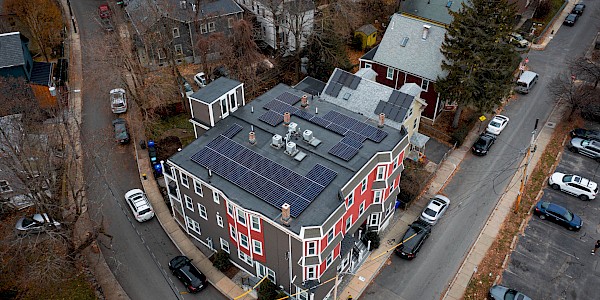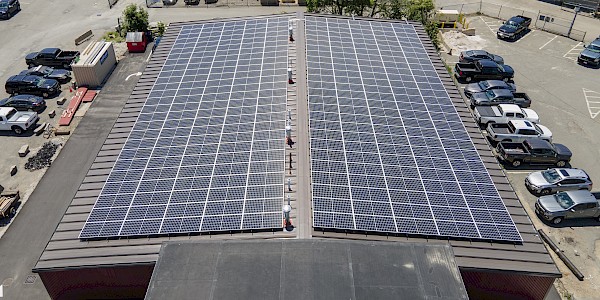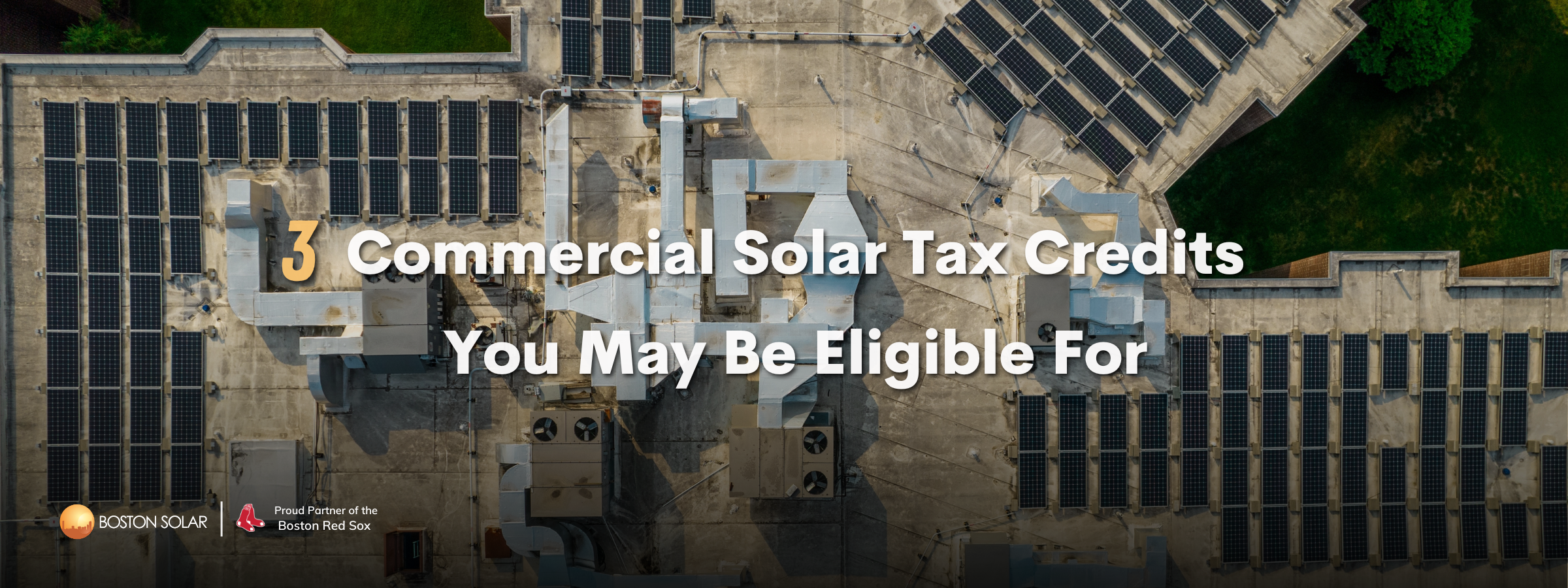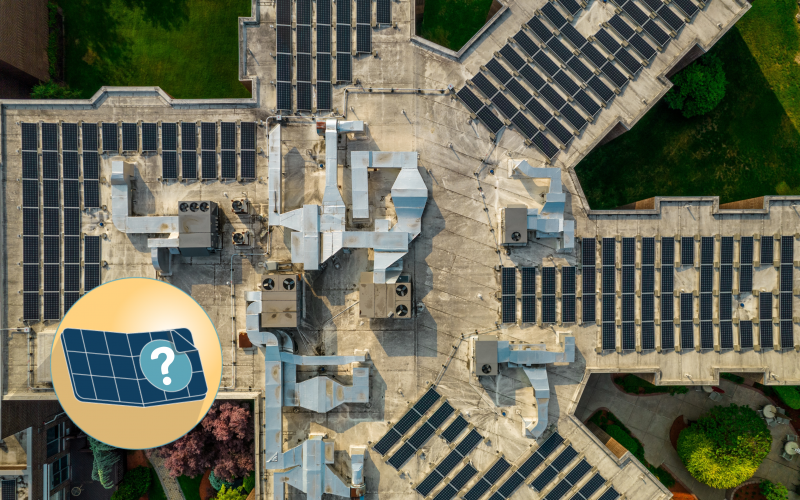3 Bonus Commercial Solar Tax Credits You May Be Eligible For
Jul. 11, 2023
*DISCLAIMER: While this blog post discusses solar tax credits, you should always consult your tax professional for your specific situation. We do not assume responsibility for your tax situation or credits.
Installing commercial solar panels has a long list of benefits for businesses, including tax breaks.
Commercial solar installations can receive one of two federal solar tax credits for businesses: the investment tax credit (ITC) or the production tax credit (PTC).
The ITC is an upfront tax credit worth 30% of your total commercial solar installation costs.
The PTC is an annual credit calculated based on the amount of electricity your solar system produces over the course of 10 years.
Related: The Basics of the ITC vs PTC for Commercial Solar Installation
In most cases, commercial solar projects must choose to claim either the ITC or the PTC—they cannot claim both. But both business solar credits offer bonus solar tax credits based on labor requirements that can add to your tax savings. These adder credits were introduced in the Inflation Reduction Act of 2022 and guidance around them is still being released by the IRS.
Boston Solar is staying up to date on new solar tax incentives as information is released, and we’ve provided details based on the current guidance below.
Domestic Content Bonus Credit
The domestic content bonus solar tax credit incentivizes US solar manufacturing. Projects that meet domestic content requirements can receive a 10 percentage point increase in the value of the ITC or a 10 percent increase in value for the PTC. This brings the ITC up from 30% to 40% and increases the PTC base credit.
Domestic Content Bonus Qualifications
The IRS released guidance on the domestic content bonus qualifications in May 2023. To qualify for the bonus, all structural steel or iron products must be produced in the United States. A “required percentage” of manufactured products must also be mined, produced, or manufactured in the United States. The required percentage of manufactured products starts at 40% for projects that begin construction before 2025 and increases for the following years.
Energy Community Bonus Credit
Commercial solar projects that build in a qualified energy community may be eligible for a 10 percentage point increase in the value of the ITC or a 10 percent increase in value for the PTC.
The following are considered energy communities:
A brownfield site
Certain statistical areas, based on unemployment rates
A census tract or directly adjoining census tract where a coal mine closed after 1999 or a coal-fired electricity generating unit retired after 2009
The IRS released its latest guidance on the energy community bonus solar tax credit in April 2023.
Low-Income Bonus Credit
The low-income bonus solar tax credit is only available to commercial solar installations using the ITC that are under 5 megawatts in size. The credit is also subject to an annual program-wide cap.
Projects that are located in a low-income community (as defined by the New Markets Tax Credit) or on Indian land can receive an additional 10% ITC.
Commercial solar installations that are classified as either a “qualified low-income residential building project” or a “qualified low-income economic benefit project” can receive an additional 20% ITC.
Start Your Commercial Solar Installation with Boston Solar
Boston Solar is the leading commercial solar panel installer in Massachusetts and southern New Hampshire. We’ve been empowering New England for over 11 years and have installed over 5,000 solar energy systems.
We can help you learn more about the federal solar tax incentives for businesses that your project may be eligible for. Give us a call today to start the conversation.
Save on commercial solar installation with federal tax credits. Call 617-858-1645 or contact us to learn more.




